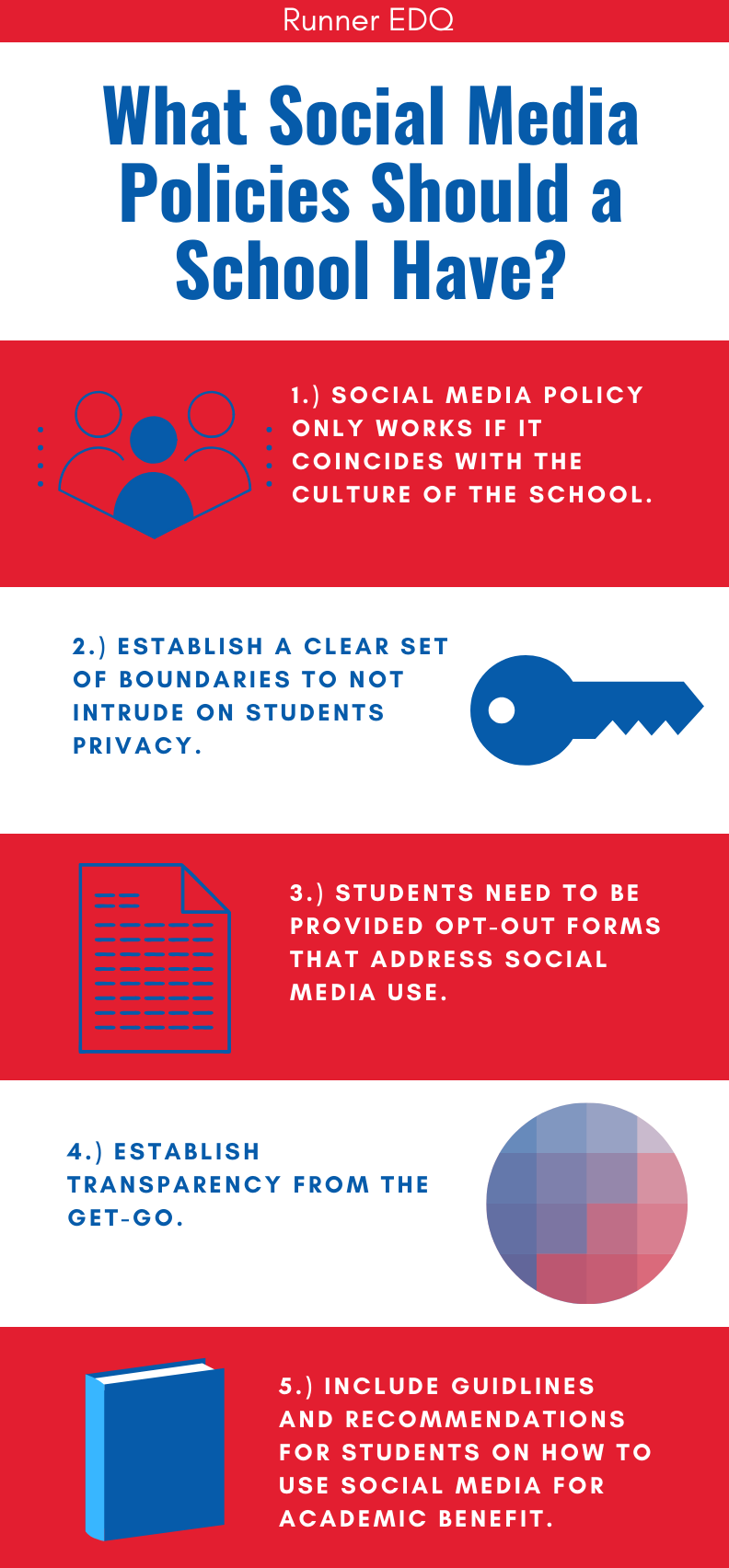Many schools already know that social media is very useful for both them and their students. It enables the school to effectively target potential students and keep existing ones. It also allows the students to connect with their school and find what they need to improve their academic performance.
However, rules must exist, as social media can be a double-edged sword and can easily cause more harm than good, especially for the academic performance of students. That’s why every school needs to have a clear set of policies on the usage of social media. Let’s take a look at how to create the right ones for your institution.
How to Create Great Social Media Policies
It’s important to note that no overall policy can be perfect. All you can hope for is to have the best social media policy possible to ensure the platforms are used responsibly and for beneficial purposes.
What’s more, you will have to create tailor-made policies, as every school, student body, and teacher is unique, as well. That requires the existence of a specific set of social media rules and guidelines that cannot and should not be copied by other schools.
Having said that, let’s take a look at the things you must consider when creating a social media policy for your institution:
- Before you attempt to create the policy, it’s vital to examine the overall culture of the school. Your whole social media policy will not work, unless it takes into account the school culture.
- As social media can be used as a means for violating students’ privacy, it’s essential to establish a clear set of boundaries for respecting and protecting that privacy. Teachers and students should share the bare minimum of information, and all users should restrict location sharing features on their devices.
- You need to have opt-out forms that address social media use. Here is a good example of how an opt-out form should look.
- Establish transparency from the get-go. Teachers should inform their students how social media will be used, so everyone will be informed from the very start.
- Most importantly, your policies should include guidelines and recommendations on how students should use social media to improve their academic performance and fulfill their academic goals.
In the end, don’t forget that social media policies exist to lower the risk and mitigate the liability of institutions. We all know this to be true, but it is rarely discussed. However, that doesn’t mean that your institution can’t be different. You can include policies that will guide and support student learning and have a positive influence on the classroom.

Improve Your Social Media Policy with Data Collection
None of this is possible without proper data collection and subsequent organization of that same data. That’s why Runner EDQ offers an enterprise solution that will help you keep pace with the changing data landscape throughout the lifecycle of every student.
